
Sir John Lavery was an Irish painter best known for his portraits and wartime depictions.
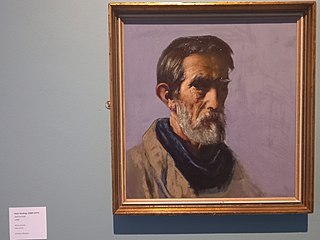
Seán Keating was an Irish romantic-realist painter who painted some iconic images of the Irish War of Independence and of the early industrialization of Ireland. He spent two weeks or so each year during the late summer on the Aran Islands and his many portraits of island people depicted them as rugged heroic figures.

Gabriel Hayes was an Irish artist born in Dublin. She was a sculptor and medallist who studied in Dublin, France, and Italy and was also an accomplished painter.
Nathaniel Grogan (1740–1807) was an Irish painter from Cork, and one of the most important Irish genre painters of the late 18th century.
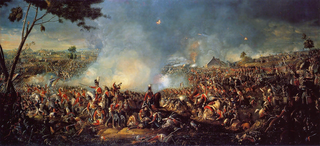
William Sadler II, also known as William Sadler the Younger, was an Irish painter. He was a noted landscape painter who is known for his depiction of the Battle of Waterloo.
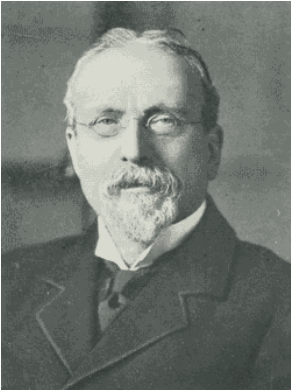
James Brenan was an Irish artist and educator. He served as the headmaster of the Cork School of Art. His name was also spelled James Brennan.

Jonathan Fisher was an Irish painter and engraver.

Robert Hunter was a portrait-painter and a native of Ulster. He studied under the elder Pope, and had a considerable practice in Dublin in the middle of the eighteenth century. He modelled his tone of colouring on the painting of old masters.
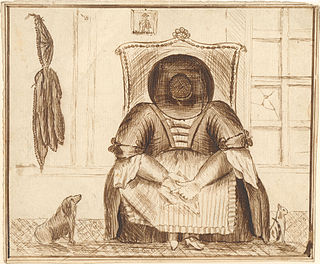
Henry Brocas was an Irish artist known for his landscapes.
Sir William Yorke, 1st Baronet PC was an English-born politician and judge in eighteenth-century Ireland, who held office as Chief Justice of the Irish Common Pleas and as Chancellor of the Exchequer of Ireland. His last years were plagued by ill health: he suffered agonies from a kidney stone, and his death was caused by an accidental drug overdose, which he took in an effort to relieve the chronic pain.
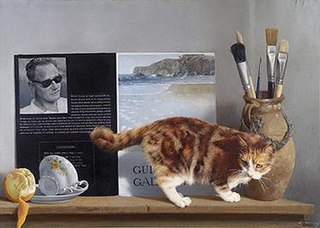
Patrick Anthony Hennessy RHA was an Irish realist painter. He was known for his highly finished still lifes, landscapes and trompe l'oeil paintings. The hallmark of his style was his carefully observed realism and his highly finished surfaces, the result of a virtuoso painting technique. He was brought up in Arbroath by his mother and step-father, his father having been killed during World War One. He attended Dundee School of Art where he met his lifelong companion, the painter Henry (Harry) Robertson Craig. Two of his paintings were accepted in 1939 at the Royal Scottish Academy for their Annual Exhibition. For the next 29 years he lived in Ireland with extended trips abroad. He was elected a member of the Royal Hibernian Academy in 1949. The Hendriks Gallery in Dublin and the Guildhall Galleries in Chicago were the main outlets for his work. In the late 1960s he moved permanently to Tangier and then, after suffering ill health, to the Algarve. He died in London.
Robert Crone was an Irish landscape painter.

Sampson Towgood Roch (1757–1847) was an Irish painter of miniatures.
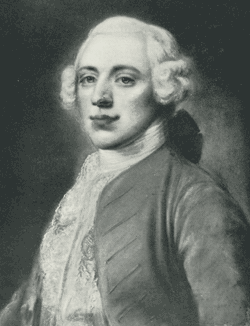
Gustavus Hamilton was an Irish miniature painter.

Edward Daniel Leahy was an Irish portrait and subject painter. He was trained in Dublin, where he began his career before establishing himself in London.

James Henry Brocas was an Irish artist best known for his landscapes, portraits, and portraits of cattle and horses.
Timothy Collopy was an Irish portrait painter.
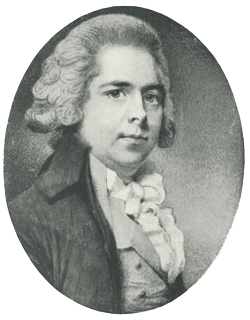
Horace Hone was an English painter of miniatures.

Frederick Buck (1771–1840) was an Irish miniature portrait artist active during the late 18th and early 19th centuries. Born in Cork, Ireland, Buck is best known for his miniatures. His work was in high demand among the Anglo-Irish gentry and military officers stationed in Ireland. His miniatures are considered exemplary of the art form in Ireland, a tradition that flourished in the 18th and early 19th centuries, especially during the Romantic period's appreciation for fine portraiture.















